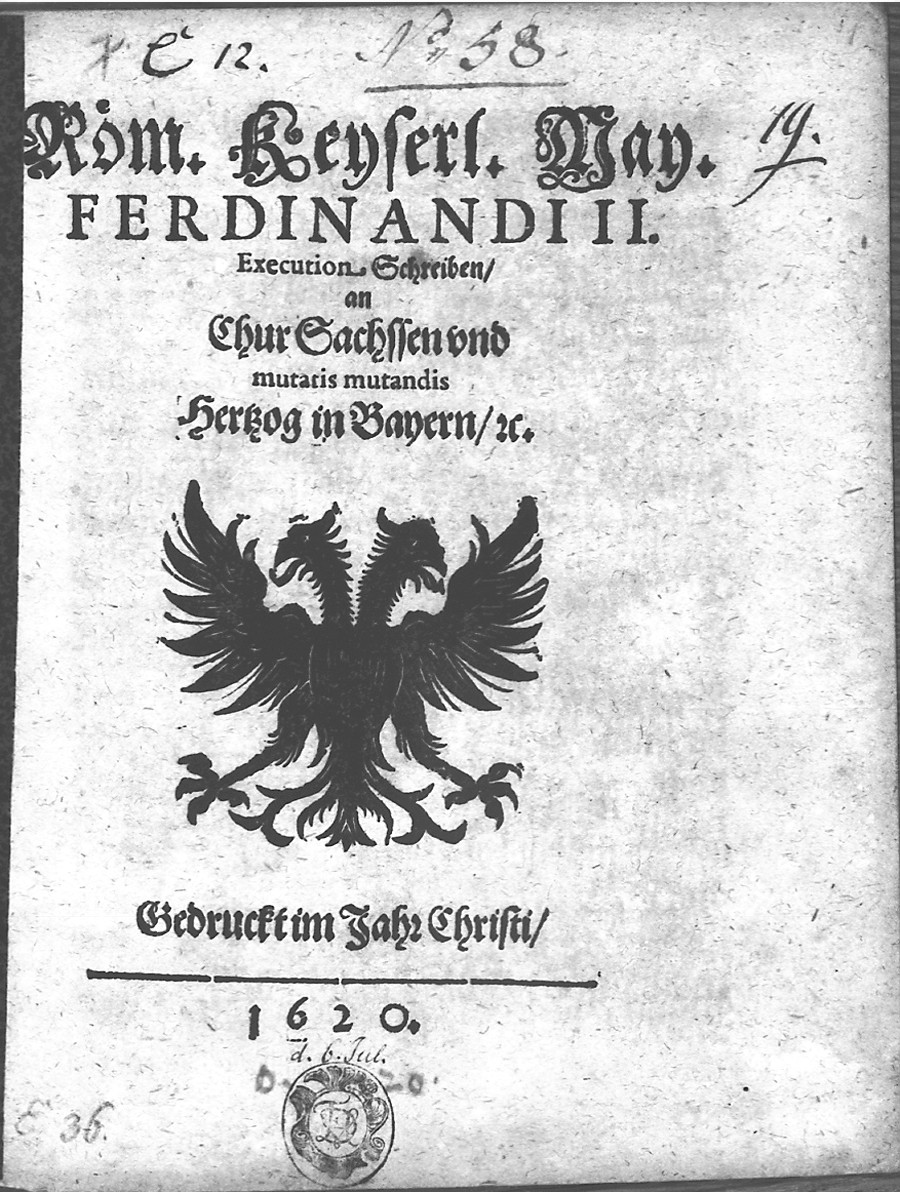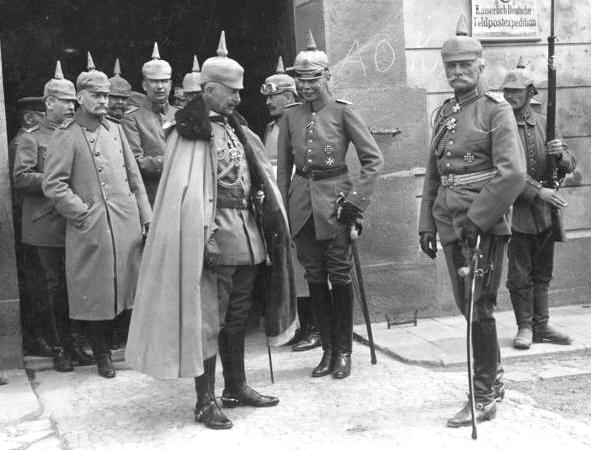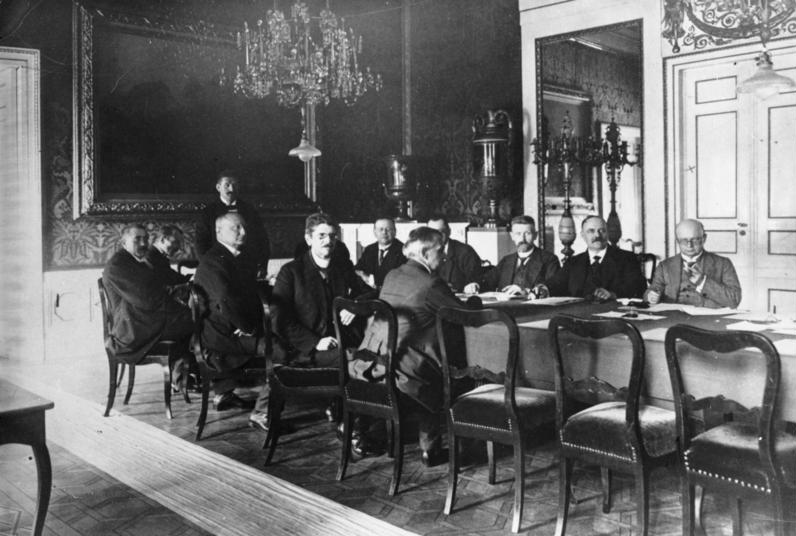|
Otto Gessler
Otto Karl Gessler (or Geßler) (6 February 1875 – 24 March 1955) was a liberal German politician during the Weimar Republic. From 1910 until 1914, he was mayor of Regensburg and from 1913 to 1919 mayor of Nuremberg. He served in numerous Weimar cabinets, most notably as ''Reichswehrminister'' (Minister of Defence) from 1920 to 1928. Early life Otto Karl Gessler was born on 6 February 1875 in Ludwigsburg in the Kingdom of Württemberg as the son of the non-commissioned officer Otto Gessler and his wife Karoline (née Späth). He finished school in 1894 with the Abitur at the ''Humanistisches Gymnasium'' in Dillingen an der Donau. He studied law in Erlangen, Tübingen and Leipzig and received his doctorate there in 1900. Initially, he worked for the judicial service of Leipzig. He then moved to Bavaria and served in various positions in the Bavarian justiciary (1903 clerk in the Bavarian Ministry of Justice, 1904 prosecutor in Straubing, 1905 ''Gewerberichter'' in Munich) bef ... [...More Info...] [...Related Items...] OR: [Wikipedia] [Google] [Baidu] |
Bundesarchiv Bild 146-1968-100-04A, Otto Karl Geßler
The German Federal Archives or Bundesarchiv (BArch) (german: Bundesarchiv) are the National Archives of Germany. They were established at the current location in Koblenz in 1952. They are subordinated to the Federal Commissioner for Culture and the Media (Claudia Roth since 2021) under the German Chancellery, and before 1998, to the Federal Ministry of the Interior (Germany), Federal Ministry of the Interior. On 6 December 2008, the Archives donated 100,000 photos to the public, by making them accessible via Wikimedia Commons. History The federal archive for institutions and authorities in Germany, the first precursor to the present-day Federal Archives, was established in Potsdam, Brandenburg in 1919, a later date than in other European countries. This national archive documented German government dating from the founding of the North German Confederation in 1867. It also included material from the older German Confederation and the Imperial Chamber Court. The oldest documents i ... [...More Info...] [...Related Items...] OR: [Wikipedia] [Google] [Baidu] |
World War I
World War I (28 July 1914 11 November 1918), often abbreviated as WWI, was one of the deadliest global conflicts in history. Belligerents included much of Europe, the Russian Empire, the United States, and the Ottoman Empire, with fighting occurring throughout Europe, the Middle East, Africa, the Pacific, and parts of Asia. An estimated 9 million soldiers were killed in combat, plus another 23 million wounded, while 5 million civilians died as a result of military action, hunger, and disease. Millions more died in genocides within the Ottoman Empire and in the 1918 influenza pandemic, which was exacerbated by the movement of combatants during the war. Prior to 1914, the European great powers were divided between the Triple Entente (comprising France, Russia, and Britain) and the Triple Alliance (containing Germany, Austria-Hungary, and Italy). Tensions in the Balkans came to a head on 28 June 1914, following the assassination of Archduke Franz Ferdin ... [...More Info...] [...Related Items...] OR: [Wikipedia] [Google] [Baidu] |
Reichsexekution
In German history, a ''Reichsexekution'' (sometimes "Reich execution" in English) was an imperial or federal intervention against a member state, using military force if necessary. The instrument of the ''Reichsexekution'' was constitutionally available to the central governments of the Holy Roman Empire (800–1806), the German Empire of 1848–49, the German Empire of 1871–1918, the Weimar Republic (1918–33) and Nazi Germany (1933–45). Under the German Confederation (1815–66) and the North German Confederation (1867–71), the same right belonged to the confederal government and is called '' Bundesexekution''. Holy Roman Empire The basis of the Holy Roman Emperor's right to act against an Imperial Estate, by military means if necessary, lay in the imperial reforms enacted by the Diet of Worms in 1495, most importantly the declaration of Eternal Peace within the bounds of the empire. Against those who broke the peace, the emperor could obtain a ruling from the Imperia ... [...More Info...] [...Related Items...] OR: [Wikipedia] [Google] [Baidu] |
Reichstag (Weimar Republic)
The Reichstag of the Weimar Republic (1919–1933) was the lower house of Germany's parliament; the upper house was the Reichsrat, which represented the states. The Reichstag convened for the first time on 24 June 1920, taking over from the Weimar National Assembly, which had served as an interim parliament following the collapse of the German Empire in November 1918. Under the Weimar Constitution of 1919, the Reichstag was elected every four years by universal, equal, secret and direct suffrage, using a system of party-list proportional representation. All citizens who had reached the age of 20 were allowed to vote, including women for the first time, but excluding soldiers on active duty. The Reichstag voted on the laws of the Reich and was responsible for the budget, questions of war and peace, and confirmation of state treaties. Oversight of the Reich government (the ministers responsible for executing the laws) also resided with the Reichstag. It could force individual mi ... [...More Info...] [...Related Items...] OR: [Wikipedia] [Google] [Baidu] |
Reichswehr
''Reichswehr'' () was the official name of the German armed forces during the Weimar Republic and the first years of the Third Reich. After Germany was defeated in World War I, the Imperial German Army () was dissolved in order to be reshaped into a peacetime army. From it a provisional Reichswehr was formed in March 1919. Under the terms of the Treaty of Versailles, the rebuilt German army was subject to severe limitations in size and armament. The official formation of the Reichswehr took place on 1 January 1921 after the limitations had been met. The German armed forces kept the name 'Reichswehr' until Adolf Hitler's 1935 proclamation of the "restoration of military sovereignty", at which point it became part of the new . Although ostensibly apolitical, the Reichswehr acted as a state within a state, and its leadership was an important political power factor in the Weimar Republic. The Reichswehr sometimes supported the democratic government, as it did in the Ebert-G ... [...More Info...] [...Related Items...] OR: [Wikipedia] [Google] [Baidu] |
Hans Von Seeckt
Johannes "Hans" Friedrich Leopold von Seeckt (22 April 1866 – 27 December 1936) was a German military officer who served as Chief of Staff to August von Mackensen and was a central figure in planning the victories Mackensen achieved for Germany in the east during the First World War. During the years of the Weimar Republic he was chief of staff for the ''Reichswehr'' from 1919 to 1920 and commander in chief of the German Army from 1920 until he resigned in October 1926. During this period he engaged in the reorganization of the army and laid the foundation for the doctrine, tactics, organization, and training of the German army. By the time Seeckt left the German Army in 1926 the ''Reichswehr'' had a clear, standardized operational doctrine, as well as a precise theory on the future methods of combat which greatly influenced the military campaigns fought by the ''Wehrmacht'' during the first half of the Second World War. While Seeckt undertook multiple programs to get around the ... [...More Info...] [...Related Items...] OR: [Wikipedia] [Google] [Baidu] |
Defence Minister
A defence minister or minister of defence is a cabinet official position in charge of a ministry of defense, which regulates the armed forces in sovereign states. The role of a defence minister varies considerably from country to country; in some the minister is only in charge of general budget matters and procurement of equipment; while in others the minister is also an integral part of the operational military chain of command. A defence minister could be titled Minister for Defense, ''Minister of National Defense'', Secretary of Defense, ''Secretary of State for Defence'', Minister of War or some similar variation. Lists * List of current defence ministers See also * Chief of Defence * Commander-in-chief * Ministry of defence * War cabinet References {{Types of government minister Defence Defense or defence may refer to: Tactical, martial, and political acts or groups * Defense (military), forces primarily intended for warfare * Civil defense, the organizin ... [...More Info...] [...Related Items...] OR: [Wikipedia] [Google] [Baidu] |
Gustav Noske
Gustav Noske (9 July 1868 – 30 November 1946) was a German politician of the Social Democratic Party (SPD). He served as the first Minister of Defence (''Reichswehrminister'') of the Weimar Republic between 1919 and 1920. Noske has been a controversial figure because although he was a member of the socialist movement, he used army and paramilitary forces to bloodily suppress the socialist/communist uprisings of 1919. Early life Noske was born on 9 July 1868 in Brandenburg an der Havel, Prussia. He was the son of the weaver Karl Noske (born 1838) and the manual labourer Emma Noske (née Herwig, born 1843). From 1874 to 1882 he went to primary and secondary school (''Volks-'' and ''Bürgerschule''). In 1882 to 1886 he was apprenticed as a basket maker at the ''Reichsteinische Kinderwagenfabrik'' and travelled to Halle, Frankfurt, Amsterdam and Liegnitz as a journeyman. In 1884, Noske joined the Social Democratic Party (SPD) and he also became a union member. In 1892, Noske was ... [...More Info...] [...Related Items...] OR: [Wikipedia] [Google] [Baidu] |
Kapp Putsch
The Kapp Putsch (), also known as the Kapp–Lüttwitz Putsch (), was an attempted coup against the German national government in Berlin on 13 March 1920. Named after its leaders Wolfgang Kapp and Walther von Lüttwitz, its goal was to undo the German Revolution of 1918–1919, overthrow the Weimar Republic, and establish an autocratic government in its place. It was supported by parts of the ''Reichswehr'', as well as nationalist and monarchist factions. Although the legitimate German government was forced to flee the city, the coup failed after a few days, when large sections of the German population joined a general strike called by the government. Most civil servants refused to cooperate with Kapp and his allies. Despite its failure, the Putsch had significant consequences for the future of the Weimar Republic. It was also one of the direct causes of the Ruhr uprising a few weeks later, which the government suppressed by military force, after having dealt leniently with lea ... [...More Info...] [...Related Items...] OR: [Wikipedia] [Google] [Baidu] |
Gustav Bauer
Gustav Adolf Bauer (; 6 January 1870 – 16 September 1944) was a German Social Democratic Party leader and the chancellor of Germany from June 1919 to March 1920. He served as head of government for nine months. Prior to becoming head of government, Bauer had been Minister of Labour in the first democratically elected German cabinet. After his cabinet was brought down by the Kapp Putsch in March 1920, Bauer served as vice-chancellor, Minister of the Treasury, and Minister of Transportation in other cabinets of the Weimar Republic from May 1920 to November 1922. In 1924 and 1925 he was involved in the Barmat scandal. Early life Bauer was born on 6 January 1870 in Darkehmen, near Königsberg in East Prussia (now Ozyorsk, Kaliningrad Oblast, Russia) as the son of bailiff Gustav Bauer and his wife Henriette (née Groß). From 1876 to 1884, he attended the ''Volksschule'' in Königsberg. After 1884, he worked as a clerk and later head clerk for a lawyer at Königsberg. In 1895, h ... [...More Info...] [...Related Items...] OR: [Wikipedia] [Google] [Baidu] |
Bauer Cabinet
The Bauer cabinet (German: ''Kabinett Bauer'') was the second democratically elected ''Reichsregierung'' of the German Reich. It was named after ''Reichsministerpräsident'' (head of government) Gustav Bauer and took office on 21 June 1919 when it replaced the Scheidemann cabinet. Although the Weimar Constitution was not in force yet, it is generally counted as the second government of the Weimar Republic. It was initially based on a coalition of the Social Democratic Party of Germany (SPD) and the Zentrum. The German Democratic Party (DDP) had refused to support signing the Treaty of Versailles, over which the Scheidemann Cabinet had resigned on 20 June 1919. The DDP rejoined the Bauer cabinet on 3 October 1919, thus restoring the original Weimar Coalition of centre-left parties. The Bauer cabinet resigned on 27 March 1920 as a result of the Kapp-Lüttwitz Putsch and was followed by the government of Hermann Müller. Election and establishment The government of Gus ... [...More Info...] [...Related Items...] OR: [Wikipedia] [Google] [Baidu] |
German Democratic Party
The German Democratic Party (, or DDP) was a center-left liberal party in the Weimar Republic. Along with the German People's Party (, or DVP), it represented political liberalism in Germany between 1918 and 1933. It was formed in 1918 from the Progressive People's Party and the liberal wing of the National Liberal Party, both of which had been active in the German Empire. After the formation of the first German state to be constituted along pluralist-democratic lines, the DDP took part as a member of varying coalitions in almost all Weimar Republic cabinets from 1919 to 1932. Before the Reichstag elections of 1930, it united with the People’s National Reich Association (), which was part of the nationalist and anti-Semitic Young German Order (). From that point on the party called itself the German State Party (, or DStP) and retained the name even after the Reich Association left the party. Because of the connection to the Reich Association, members of the left wing of the ... [...More Info...] [...Related Items...] OR: [Wikipedia] [Google] [Baidu] |







.jpg)